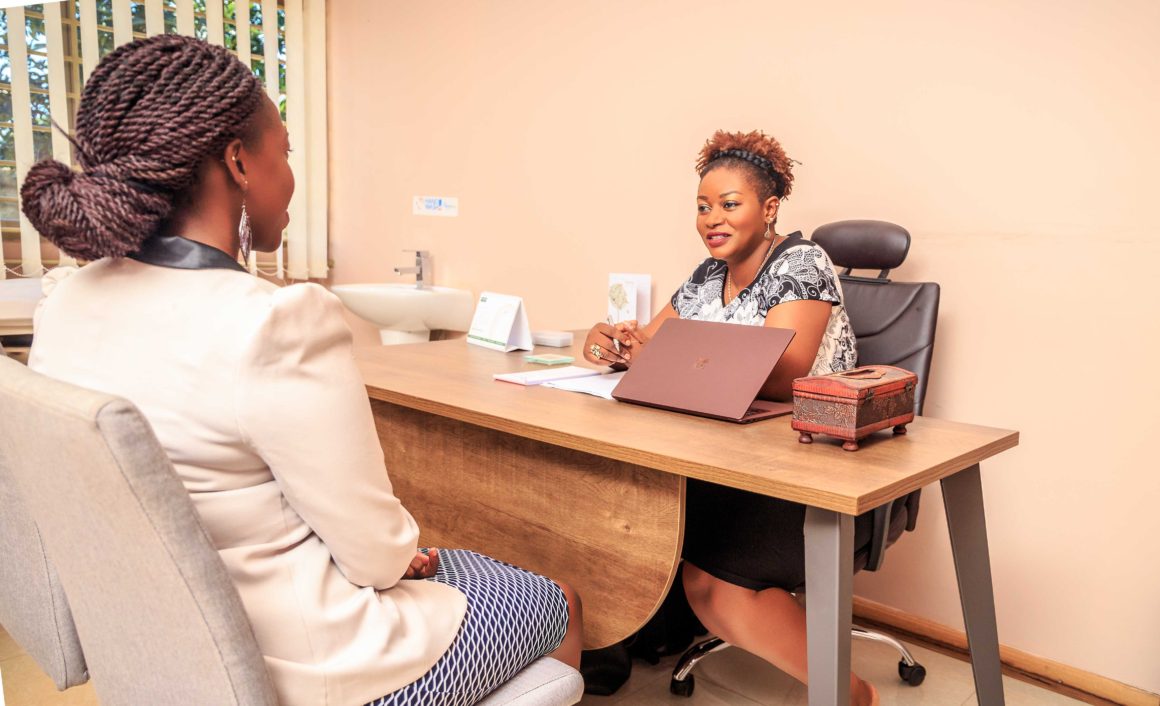Dr Maria Akani is a Psychiatrist and Clinical Neuropsychologist. She is the managing consultant of a practice called Renaisense located in Lusaka, Zambia. At Renaisense, Dr Akani and her team facilitate life transformation through counselling, psychotherapy, psychiatry, coaching and training. Her day to day duties are mainly two-fold:
As a specialist practitioner, she sees clients whether groups or individuals and designs interventions for them. These interventions may include treatment or therapy. In her role as managing consultant, she oversees the day to day running of the business which includes setting the strategic direction of the company, supervising other therapists or consultants, managing stakeholders including the board and overseeing all the different departments at the practice.
What led you to pursue a career in health?
I can’t really remember what. I know it came from a deep desire to help people, but I am not sure why I chose medicine and not any of the other caring professions. Maybe TV contributed. I watched the series ‘ER’ quite a bit growing up. I also had a cousin who mentored me a lot.
I chose mental health thought because I found that Mental health is the confluence of my passion, talents, natural abilities, skills and education. It is a perfect fit for me..
What are you most proud of?
My most recent proud moments are:
a) Setting up the private practice. A place of renewal and refreshing
b) Receiving the Zambian Women of the Year Health Award for 2019. It meant that all my efforts did not go unnoticed. And also, that people are beginning to recognise the value of mental health
c) Being asked to do my first ever TEDxLusaka talk and finally delivering on 1st June, 2019
What do you wish you had done differently?
I have very few regrets in my life. In fact, I cannot recall anything right now. I have an optimistic outlook in my life and part of it is because I have found that no experience in my life has been wasted. I really believe in the saying, ‘Sometimes you win, sometimes you learn.
What are some of the biggest challenges you have faced? How did you overcome them? What are some of the lessons learnt?
Pursuing my Master of Medicine while having my children. I conceived and delivered both my children while in school. It was the biggest life circus act I have ever juggled so far. What was helpful during this time was to have a supportive husband, great domestic support at home and having accommodating lecturers. I learn that to achieve a lot, I need the support of others along the way. Some may not help me directly, like helping me to learn or study in that case, but the fact that they help me with other tasks, means that I have more time and energy to do the ones they cannot help with. And I also learnt to take the help.
Working with a difficult supervisor. I almost quit on my dream altogether. I went back to the drawing board to ask myself if there were other ways that I could still achieve my dream. That was when I got my first inspiration to start up a private practice and begun to think outside the box
.
What are your views on mentorship and how, if applicable, has it played a role in your career advancement?
I am a product of mentorship. I not only believe it, I also live it. My earliest memories of mentorship began as early as second grade when my teacher believed in my public speaking abilities. She coached me and had me practise to say things before dignitaries. Another early memory is in 5th grade with my cousin who was then a doctor already. I have progressed this far because I have never been short of mentors in every phase of my life, both in my personal and career life. As a result, I myself am constantly mentoring people in various aspects of their lives at every point in my life.
What are some of the opportunities you see for women in health on the African continent?
I see a lot of opportunities for women in health on the African continent especially because health is one of those areas that requires people skills. African women are generally raised to accommodate people and learn how to relate to people of various backgrounds. This is an advantage already. In addition, I also see a lot of opportunities in mental health which is practically almost a virgin field. There is still very little research and interventions in the field, specialists are few and even supporting staff such as mental health social workers, mental health nurses, clinical officers in psychiatry, clinical psychologists and so on, are still very few.
What advice do you have for other women in health?
Globally, as women, and more so in Africa, this is our time to shine. The world is finally allowing us on stage so let us not shy away. Let’s hold hands, partner, get support even from men because we cannot win without them.


Leave a Reply